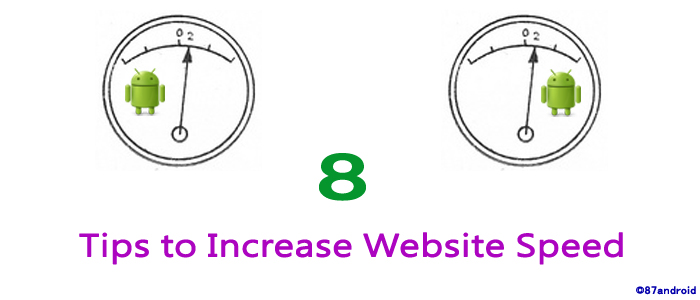Website optimization is a very important for every online business, as it gives an extra advantage to the business’s. From the technical point of view, website speed helps in optimizing their pages for better performance on the slow and fast network. As resulted it gives a fast user experience to the visitors, even on the slow network. Many popular websites uses various techniques to speed up their website to attract more visitors. However, implementation of such techniques may differ from website to website but the objective to speed up the website is always the same for many business owners.
So in this article i have mentioned few popular techniques which is being used while developing websites by developers or programmers. Readers can use below mentioned tips to speed up their website or blog.
Website Optimization Tips
1) Always put CSS in the Head tag
HTML specifications clearly mentions that css stylesheets must be included in the HEAD tag of the HTML code, as it helps website pages to renders in the browsers at fast speed. Front end designers also uses this common technique very much to optimize website pages. It improves the website user experience and helps in website optimization.
2) Cache your website content
We should cache website content to speed up its activities. “Last-Modified” header provides efficient page caching, which means information about the file(which it wants to load) will be stored in your browser. Many web server automatically appends “Last-modified” header to the static pages based on the last-modified date stored in the file system. But the problem persist with the dynamic pages(such as .jsp, .php, .aspx), where this cannot be done.
3) Minification of JavaScript and CSS
We can increase website speed by minifying JavaScript and CSS files. Minifying of JavaScript and CSS files is a process where it removes unnecessary characters from the code to reduce the file size. In this process all comments and unnecessary white space characters(such as tab,newline etc) are minified to improve the website response time. Presently there are many minification tools available in the market but YUI Compressor and JSMin is the best pick for minification of JavaScript and CSS files.
4) Always remove Duplicate Scripts
Duplicate code in the web page always confuse programmers and generate unnecessary HTTP requests, which degrades the performance of the web page. Generating the same script twice always wasted the script evaluation time. But we can avoid this problem by managing scripts in the web page while coding.
Note: Always put path of the JavaScript files in the bottom of the web page for fast execution of the page in the browsers. (eg: <script type=”text/javascript” src=”file.html”></script>)
5) Always use latest HTML & CSS properties
We must use updated HTML and CSS properties while developing web pages for modern browsers, as it speed up the parsing process by browsers for web pages. A valid markup or properties also useful in creating responsive websites for various modern browsers.
6) Use “<div>” in place of “<table>”(where possible)
Both “<div>” and “<table>” tags are valid html markups and widely used in web page development. But we should understand the difference between these two tags while using both of them in our web pages. However, we should use “<div>” tag instead of “<table>” tag in website development. The “<table>” tag mostly used to fetch data from databases in tabular format. While on the other side “<div>” tag provides systematic and fast parsing structure to the browsers, which further help browsers to render web pages quickly in the browsers.
7) Choose best Content Delivery Network(CDN) for websites
Placing website code across multiple, geographically dispersed servers is very useful to increase website speed. It increases the response time of the requested web pages and provides better performance on the slow network. Nowadays many small and big online giants uses CDN for their websites to increase the visitors flow onto their websites. The main advantage of CDN is that it gives the fast response time. Also It is very easy to use and widely known as the key pillar of the “website optimization” techniques.
Note: Readers can use best CDN network for their websites to increase response time of their website or blog such as Cloudfare, Maxcdn, Edgecast and many more.
8) Always optimize images
Optimizing images for the website can increases the website speed by 20 to 30 percent. Readers can use various image optimizer tools to optimize original images for their websites or blogs. However, it is recommend that we should mention the image height and width while placing it on our web page for fast parsing by browsers.
Note: Readers can use Google Pagespeed Tools to optimize and speed up their websites or blogs to attract more visitors into their websites or blogs. It also tells the necessary fixes to improve website user interface, increase website speed and other required website optimization measures.
Uploaded by: Author


